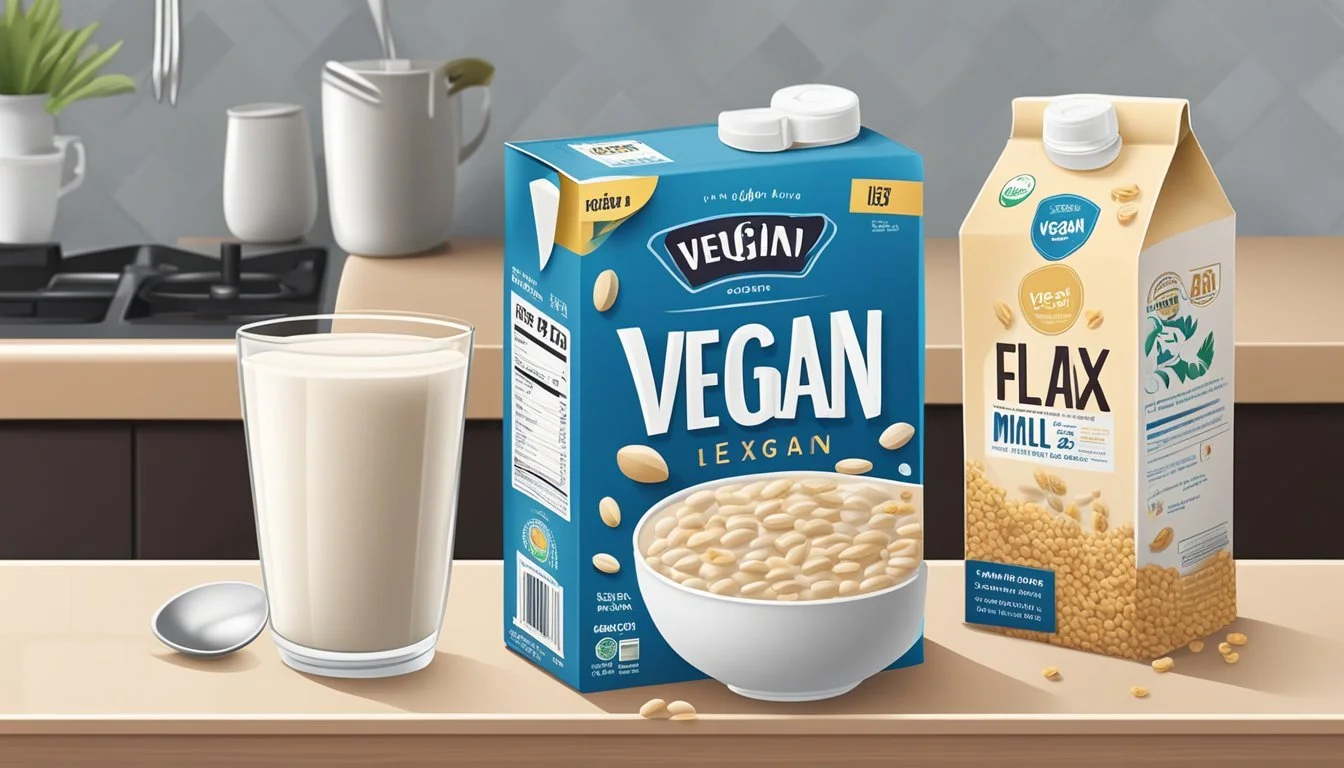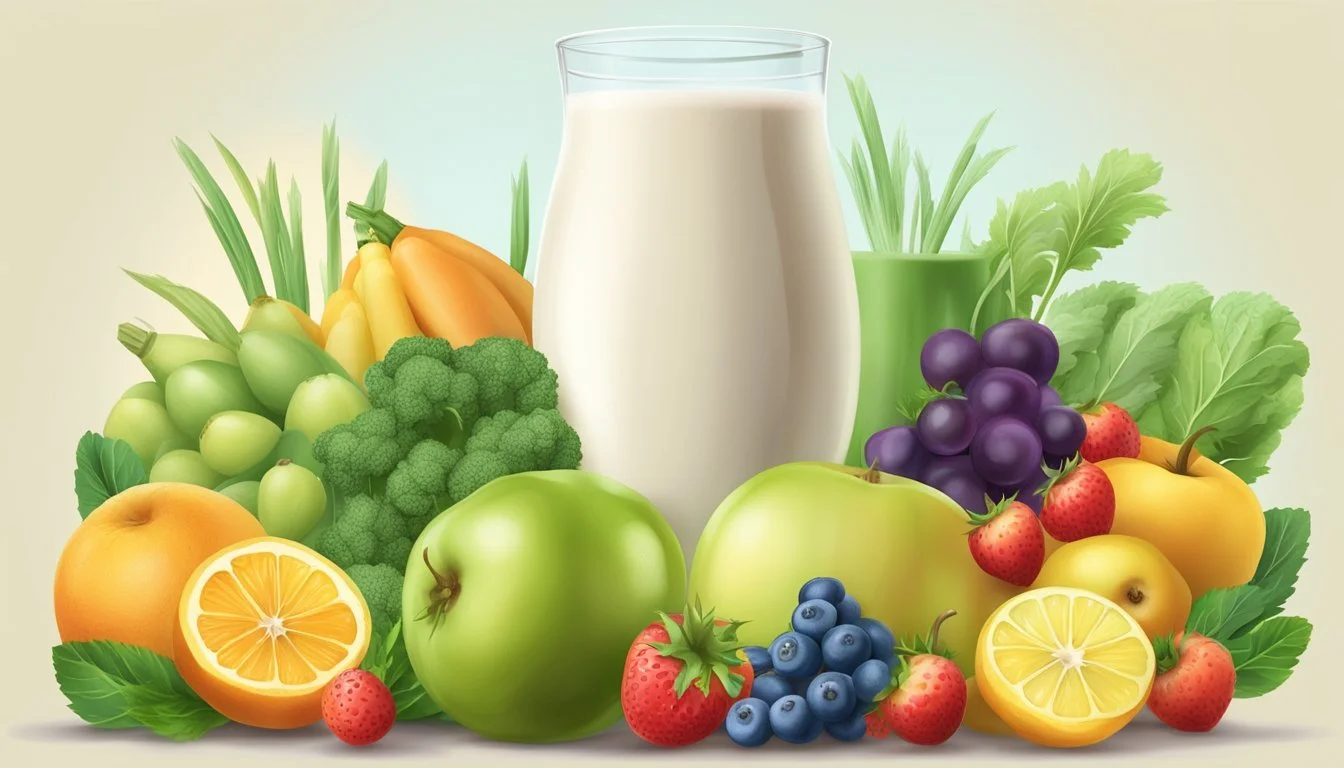Is Flax Milk Vegan?
Unveiling the Truth About This Plant-Based Alternative
Flax milk is an increasingly popular non-dairy alternative to traditional cow's milk that is entirely plant-based. It is derived from flaxseeds, a rich source of plant-based nutrients. This milk substitute aligns with vegan dietary preferences, given that it is produced without any animal products or by-products. Flax milk presents itself as a viable option for those seeking to avoid dairy for ethical, health, or environmental reasons, as well as those with dietary restrictions such as lactose intolerance.
The production process of flax milk involves blending flaxseeds with water, which results in a liquid that mimics the creaminess of dairy milk but with distinct characteristics. The flavor profile of flax milk is described as earthy and nutty, and it often appeals to those who enjoy the taste of plant-based milk options. Nutritionally speaking, flax milk is a good source of omega-3 fatty acids, particularly alpha-linolenic acid (ALA), which is beneficial for cardiovascular health.
As a plant-based milk, flax milk fits well within vegan diets, offering a nutrient-rich beverage that can be consumed directly or used as a dairy alternative in various recipes. Its growing popularity can partly be attributed to its lactose-free, gluten-free, and nut-free attributes, making flax milk an inclusive option for diverse dietary needs while maintaining its vegan integrity.
Understanding Flax Milk
Flax milk, a plant-based milk alternative, is quickly gaining popularity among consumers looking for dairy-free options. It stands out for its nutritional benefits and allergen-friendly profile.
Origins and Production of Flax Milk
Flax milk is made from flaxseeds, which are ground and mixed with water. The blend is then strained to produce a smooth, plant-based milk. This dairy-free milk is an excellent option for those with nut allergies, as flax is a seed rather than a nut.
Nutritional Profile
Calories & Nutrients:
A typical serving of flaxseed milk contains about 50 calories and is low in saturated fat. It's enriched with protein and offers a dose of fiber, which supports digestive health.
Omega-3 Fatty Acids:
Flax milk is a rich source of plant-based omega-3 fatty acids, beneficial for heart health.
Vitamins & Minerals:
Fortified flax milk often includes additional nutrients such as calcium, vitamins A, B12, D, and thiamine, enhancing its nutritional value.
Comparison to Other Plant-Based Milks
Protein: Flax milk generally has less protein than soy milk but can be fortified with pea protein to increase its protein content.
Fat Content: It provides a healthier fat profile compared to cow's milk, mainly comprising omega-3 fatty acids.
Allergen-Friendly: An excellent alternative for individuals with nut allergies unlike almond milk.
Environmental Impact: Producing flax milk requires less water and has a smaller carbon footprint than dairy milk.
Taste and Texture
Taste: Flaxseed milk offers a flavor that some find comparable to almond milk but is distinctively lighter and without a pronounced nutty taste.
Texture: It has a creamy, smooth texture, which makes it a versatile ingredient in recipes ranging from cereals to coffee.
Health Benefits
Flax milk, as a vegan milk alternative, offers an assortment of health benefits ranging from digestive and heart support to conducive properties for specific dietary needs. This section delves into the various advantages of flax milk consumption.
Digestive and Heart Health
Flax milk boasts a rich content of alpha-linolenic acid (ALA), a plant-based omega-3 fatty acid beneficial for heart health. Regular intake can help maintain a healthy cardiovascular system. Additionally, this plant milk is often enriched with fiber, which aids in gut health.
Weight Management and Diabetes
With fewer calories compared to conventional dairy milk, flax milk may be suitable for those managing weight. Its low-fat nature and potentially low sugar contents — especially in the unsweetened varieties — contribute to a diet conducive to weight loss and diabetic management by stabilizing blood sugar levels.
Nutritional Advantages for Special Diets
Flax milk serves as a nutritive alternative for individuals following a vegan diet, those who are lactose intolerant, or on a keto program, given its plant-based profile and absence of animal-derived lactose. Most brands are non-GMO and offer organic options, catering to specific dietary needs.
Environmental and Sustainability Aspects
As a derivative of flax seeds, flax milk production has a reduced environmental footprint, making it a sustainable choice. Brands like Good Karma often emphasize this aspect, highlighting their commitment to sustainability.
Impact on Allergies
Flax milk is generally allergy-friendly, as it doesn't contain common allergens present in cow's milk or nut-based milk alternatives, offering a safe option for consumers with various dietary restrictions.
Culinary Uses
Flax milk is versatile in recipes—employed in both sweet and savory dishes. Its creamy texture works well in smoothies, cereals, and coffee. Brands like Malibu Mylk offer flavored versions, such as vanilla, that can enhance the taste of homemade baked goods or other recipes.
Buying and Storage Tips
When purchasing flax milk, opt for options that are refrigerated or shelf-stable based on storage convenience. Select from sweetened or unsweetened varieties, and consider the use of natural sweeteners if a hint of sweetness is preferred. Proper storage in cool conditions prolongs its shelf-life.
Customizing Flax Milk
For those who prefer homemade options, a simple flax milk recipe can be made by blending flax seeds with water and optionally adding sugar, vanilla extract, or other flavorings. This can be customized to individual taste preferences and health needs.




